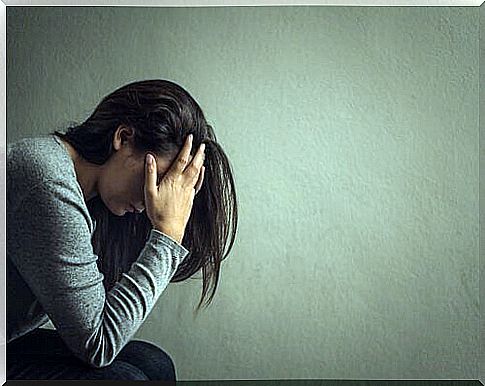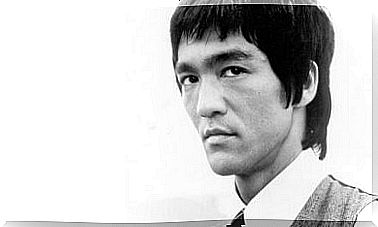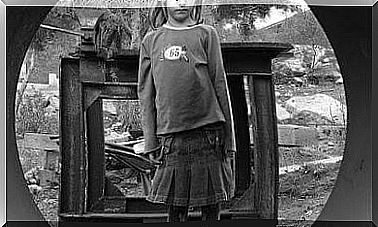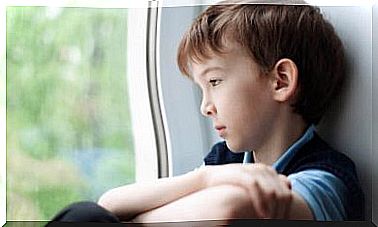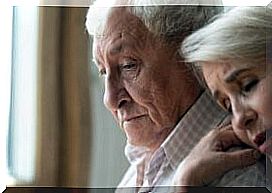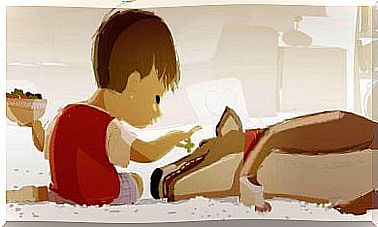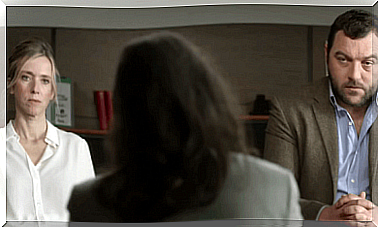Psychological Abuse Of Parents To Adult Children
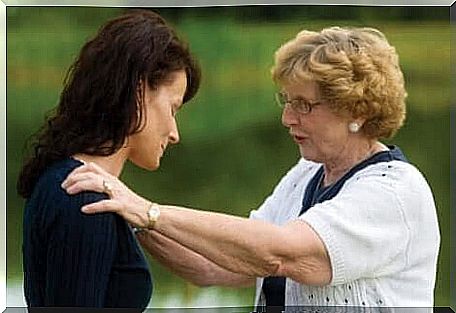
Psychological violence, or mistreatment, by parents towards adult children is a reality. The manipulations, the blackmail, the words that hurt, the comments that continue to nourish the same insecurity as in childhood … Sometimes, with maturity, the bonds that hurt are not cut or repaired. And the same dynamic continues to occur, one that lowers self-esteem and even the quality of life itself.
There are circumstances that remain invisible in our society. Psychological violence takes many forms and affects different types of victims. There are old people who suffer from the abuse of their children, children who suffer the effects of a harmful upbringing and there are also men and women who even when they have reached maturity and even the independence, continue to be subjected to aggressive treatment by a father, mother or both.
What can be done in these cases? For many people, it is little more than ironic to expose such circumstances to social services or other agencies. What is the point of putting on the table something that has been lived since the age of reason? There are those who do not see this as feasible, those who have embraced it and continue to maintain daily contact with this abusive family member.
Because one thing is clear: the aggressor and the victim always have a bond, a bond that fuels addiction, fear and even affection. A harmful affection, it is true; a poisoned love between parents and children. However, these situations often occur, persist and become chronic.
The effects of this type of reality are immense. Let’s analyze this in detail.

What is parental psychological abuse of adult children?
We define mistreatment or psychological abuse as any behavior aimed at controlling another human being through the use of fear, manipulation, humiliation, intimidation, projection of guilt, coercion , manipulation and even constant disapproval.
These forms of aggression do not leave traces on the skin, but they undermine psychological integrity. The impact on a child’s mind, for example, can be devastating. If, moreover, this type of abuse continues for decades, one can already imagine the dimension of the injury, the alteration of aspects as fundamental as self-esteem, identity, personal security, etc. .
Parents’ psychological abuse of adult children does not appear overnight. They respond to a dynamic that has its origin and its beginning in childhood. This explains why many people come into adulthood with a difficult emotional “baggage”, with a history of psychological abuse that leaves, in many cases, the shadow of post-traumatic stress disorder.
What is most striking, however, is that these people often go to great lengths to appear normal. Very few people in their immediate surroundings are aware of these facts. Sometimes even their closest friends never learn of the abuse, circumstances that are glossed over and always left behind.
When monsters are our parents and we normalize psychological abuse
When we say that parental emotional abuse of adult children is common, the first thing that comes to mind is why. How can we stand this situation? Isn’t it better to distance yourself from abusers and sever ties with them forever?
The answer is not simple because the link between a victim and an aggressor is extremely complex. Sometimes, even in adverse circumstances, coagulated with anguish, fear, humiliation and contempt, one can still love the one who suffers. Because at the end of the day it’s your father or your mother, and when you haven’t known anything else, a lot of those facts are “normalized”.
So while these adult children endure and struggle in this ambivalence that ranges from affection to fear, from love to hate, abusive parents don’t change just because that child is an adult. Contempt, criticism, humiliation, and emotional manipulation continue to be of use to them in controlling and exercising power.
Monsters don’t turn into lambs over the years. In general, they always need to be in charge and be bossy because that is part of their personality and their essence.
What is the effect of parental psychological abuse of adult children?
One of the consequences of psychological violence experienced in childhood is the development of post-traumatic stress disorder in adulthood. Community studies such as the one conducted at the University of Utrecht and the University of Coimbra, Portugal, show the importance of this relationship.
Thus, psychological violence that continues into adulthood often has the following consequences:
- Problematic and unsatisfactory emotional relationships
- Low self-esteem, feeling of worthlessness, destruction of pride, personal security, motivation …
- Emotional repression, a tendency to hide emotions
- Episodes of anxiety, stress, sleep disturbances, etc.

What can be done in these situations?
If there is a priority, it is for the adult child to be fully aware of the abuse and of the need to deal with the situation. Often behind these realities lies an addiction, both emotional and economic (many children cannot leave home because of work problems).
Likewise, sometimes, even if they are economically independent, the link of abuse continues to be evident, but in a hidden way through manipulation, criticism of every decision taken, of the partner chosen, etc. It is necessary to assume that these situations cannot and should not continue.
Faced with this fact, there are only two options. Either show the reality before the abusive parents and end the relationship, or make distance visits and reduce communications to what’s right.
Likewise, and no less important, children of abusive parents need psychological help. All these decades of suffering and humiliation leave a deep wound that must be dealt with. The goal is to regain self-esteem, personal security and thus build a clean, independent, mature and happy life.
